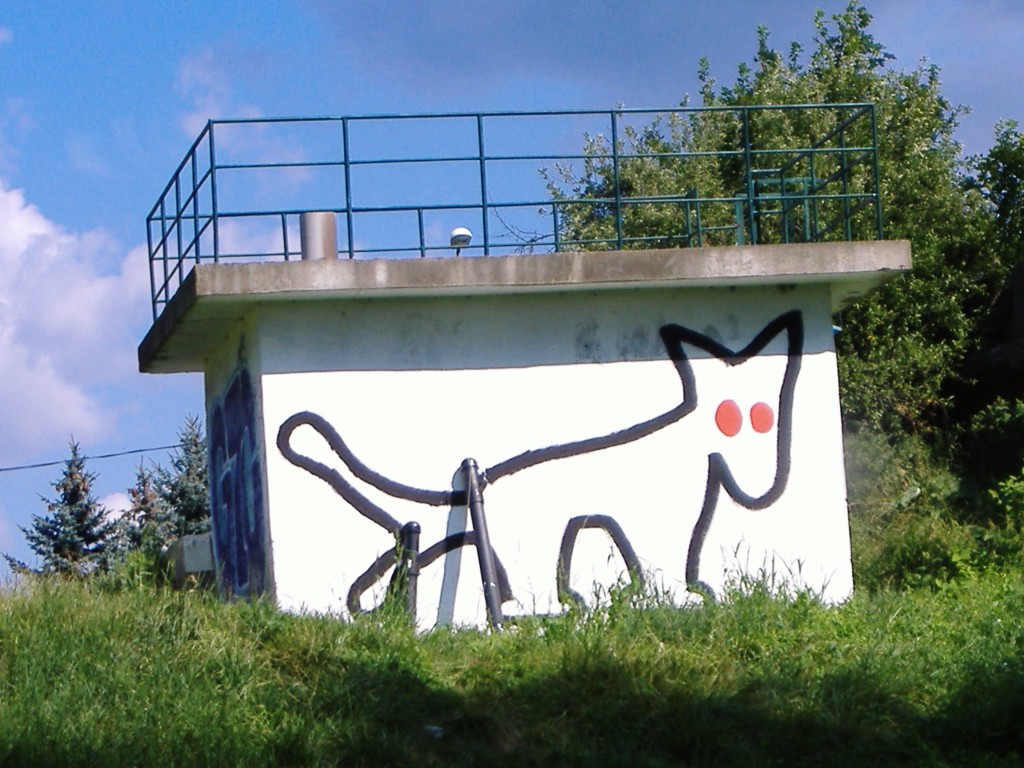Since the victory of Fidesz-KDNP in the parliamentary elections of 2010, there were no successful political campaigns – not even those run by the governing parties. The only exception is the Two-Tailed Dog Party (Magyar Kétfarkú Kutya Párt, MKKP), which is currently conducting its second poster campaign. It is worthwhile to look into the history of MKKP to see how a local community project became a nationwide political phenomenon.
The Hungarian Two-Tailed Dog Party started its activity in 2006 in Szeged – a major educational and commercial center in the Hungarian countryside. The party was not founded with a political agenda in mind, it was a small circle of friends who entertained themselves and the locals with street art (posters, pictures and graffiti). Their themes ranged from total absurdity (e.g. space station of Szeged) to social satire. The frivolous party activities started at a later stage, because the supporters of the party pressured them into it.
Gergely Kovács, the president and founder of the party stated multiple times that he did not want to partake in serious political discourse, but he would gladly point out and make fun of the Hungarian political elite. MKKP can be easily compared to the Icelandic Best Party, with a mayor to Reykjavik since 2010. Both parties rose to prominence in an economically unstable period, when numerous parts of society became disappointed with the political scene of their country.
In Hungary this process continues even today, making it easy for MKKP to use political humor to their advantage. The party was not officially recognized by the Hungarian authorities until June 2014. The court had problems with the name of the party, and it took over a year to complete the registration process. Because of this, the party could not participate in the 2014 parliamentary elections, so it remains unknown how many Hungarians would have given their vote to the frivolous party. According to the surveys, only 1% of the population would vote for them, although their poster campaigns remain popular among the critics of the government.
MKKP gathered unprecedented financial support for its poster campaigns from private sources only: in 2015 they raised more than 95,000 euro and this year more than 90,000 euro. The Fidesz-friendly media immediately accused them of being supported by George Soros and other “suspicious” sources.
The success behind MKKP presumably comes from the fact that the citizens who oppose the government’s hate and manipulation campaign did not find any other appealing messages from the regular parties. Another important factor could be that MKKP is not a part of the mainstream political scene and the aim of the campaigns is not a result of political positioning aimed to gain more voters. Their main goal in both their poster campaigns were to ridicule the government’s professional and calculated hate-mongering. As they have stated, there is already enough hatred in this country, there is no need for more. Sadly, is seems to be true: the most recent polls show an increase in negative attitudes towards the refugees and the others, although their numbers decreased dramatically in 2016.
The recent poster war began because of the coming migrant quota referendum to be held in October 2016. The Dog Party encourages their supporters to vote invalidly, because according to them: “You can only give a stupid answer to a stupid question”. One of their poster uses the same structure as the governmental one: with a “Did you know?” question at the top of each. Their content usually make fun of the half-truths the government tries to spread. An example of a MKKP poster? A regular Hungarian sees more UFOs in his lifetime than immigrants.
It is difficult to judge what effects this will have on the referendum itself, because MKKP is not the only party that stands behind the idea of invalid voting. Whether the Party can become a new alternative for dissatisfied voters or not will be measured in the elections of 2018. Until then, their activity remains an influential feature of political communication in Hungary.



